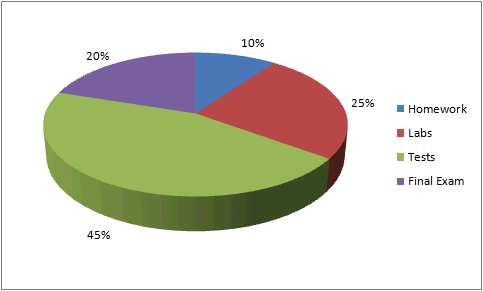|
Who should take
AP
Physics 1? Juniors or seniors that excel in
math and science and who are interested in learning the physical
principles that explain everyday occurrences. Officially,
students must have earned an
"A" or "B" in Honors Chemistry or an
"A" in Chemistry with a teacher recommendation. In
addition, Students should be concurrently enrolled in Algebra 2 or a
higher math course. It is recommended that enrolled students have
earned a grade of a “B” or higher in Honors Geometry, or a grade
of an ”A“ in Geometry.
It is highly recommended that
students taking AP Physics 1 have a high interest level in science.
In addition, students should be very comfortable manipulating
algebraic equations with out plugging in numbers.
What topics
are covered in AP Physics 1?
In general, Physics is the study of matter and energy. In
non-technical terms, students will study the motion and movement of
different things. More specifically, we cover:
-
Units and Problem solving
-
Kinematics
-
Dynamics:
Newton's Laws
-
Work,
Energy and the Conservation of Energy
-
Impulse,
Linear Momentum and Conservation of Linear Momentum
-
Circular
Motion and the Universal Law of Gravity
-
Rotational
Motion: Torque, Rotational Kinematics and Energy, Rotational
Dynamics, and Conservation of Rotational Momentum
-
Simple
Harmonic Motion (Pendulum and Mass/Spring Systems)
In
addition to learning the physics concepts covered in this course,
the student will be able to:
-
use
representations and models to communicate scientific phenomena.
-
use
mathematics to explain and predict scientific phenomena.
-
engage
in scientific questioning to extend thinking or to guide
investigations within the course.
-
plan
and implement data collection strategies in relation to a
particular scientific question.
-
perform
data analysis and evaluation of evidence.
-
work
with scientific explanations and theories.
-
connect
and relate knowledge across various scales, concepts, and
representations in and across domains
Students
will be asked to work in groups and individually to test certain
physics principles. During
the investigations, students will utilize high-level math skills and
computers to analyze data.
Back
to Top
What is the
difference between AP Physics 1 and Advanced Physics? AP
Physics 1 covers more topics than advanced physics, therefore we must
move at a faster pace. To do this, students are expected to
work hard at using their problem solving skills to successfully
complete assignments. In addition to more topics, we discuss
most elements of physics in more detail than the advanced physics
class. This higher detail often involves more algebraic
manipulation and computation, requiring students to already have a
comfortable grasp of algebra and algebraic functions. Finally,
because it is a AP level course, semester grades in AP Physics 1 are considered weighted grades.
Back
to Top
How are grades
determined? All assignments
are given point values based on the quantity and difficulty of the
work. Each assignment can be categorized into one of the
following types of assignments. Each category is then weighted
according to the chart below to determine the final grade:

| Category |
Value |
| Homework |
10% |
| Labs/Projects |
25% |
| Tests /Quizzes |
45% |
| Semester Exam |
20% |
Because of this weighting system, it
can be difficult for students to keep track of their own
grades. To minimize this effect, and in an attempt to keep
both students and parents informed of the student's progress, I post
the current grades online at least once a week.
Back
to Top
My
older son/daughter(s) took honors physics.
How does that curriculum compare to AP Physics 1?
AP Physics 1 is a more rigorous course than Honors Physics.
Although there are less topics covered, they are covered much more
thoroughly.
Back
to Top
What
credit will my son/daughter receive from taking the AP exam?
Students scoring a 4 or a 5 on the AP Physics 1 exam, will most likely be
eligible for one semester of non-calculus based physics credit in college.
Most students going into physics, engineering, medicine, or other
major requiring Calculus-based physics will only receive 1 semester of
general education credit or
elective credit. STUDENTS SHOULD CHECK THEIR PROSPECTIVE COLLEGE TO
VERIFY CREDIT AVAILABLE FOR THE AP TEST.
Back
to Top
My
son/daughter has done well in past science classes, but really doesn’t
enjoy science. Should he or
she take AP Physics 1? Due to the rigor of the AP
curriculum, students may find that AP classes require more commitment than
he or she may be used to. It
is important that you and your student consider the student’s overall
schedule when deciding on whether to take this class.
Back
to Top
*Linked files are available in PDF
format. Get the free Adobe PDF Reader here.
|